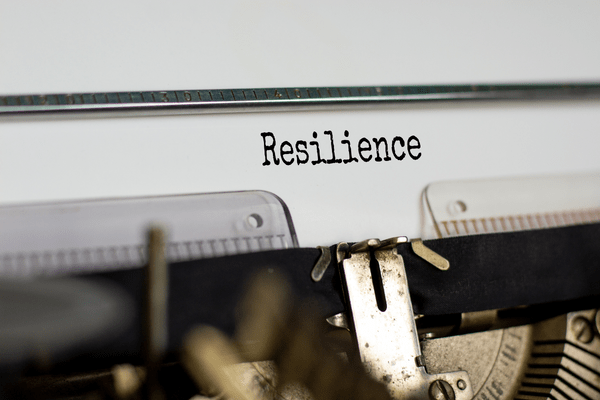You can sign up to our LinkedIn newsletter here
Within the AQai framework, one of the dimensions of adaptability is Ability. This represents the sub-dimension of adaptability skills that you can learn, develop and strengthen through explicit intervention. One of these things is resilience. I see many coaches, trainers and well-being practitioners offering to increase individual resilience. However, too often, the implicit (and sometimes explicit) definition of resilience they promote is “survival under even more pressure”. It seems that resilience training provides justification to increase the stress at work to the next level until it is no longer survivable. I view this as a pernicious expression of the corporate ethos of enslaving people to a life of toil.
In the AQai framework resilience is about bounce-back ability. The ability you have when something goes wrong to recover and bring yourself back to a place of being able to move forward. This is crucial to overall adaptability, because, in the world of relentless change, you try new ways of responding to change. Some of those ways won’t work and you will experience some failure. Resilience is really your ability to deal with failure. If you are assessed for high resilience, then this suggests that you are well adapted to responding to and dealing with failure.
But what do you do if you’ve got low resilience? How can you train yourself to be more resilient? Often the experience of failure is seen as catastrophic. You may have been badly burnt in the past. Even when something smaller goes wrong those emotions associated with catastrophic failure come back, and you start to feel that even a small disappointment is emotionally equivalent to some catastrophic failure.
You need to train yourself to shift your emotional response so that you do not see small setbacks as catastrophic failures. The way you do that is twofold.
One is to engage with that catastrophic failure in a different kind of way. I talk about looking at significant failure through a framework of mourning. And elsewhere, if you look at my material on failure, you’ll see that I strongly recommend you use the 4 stages of mourning to engage with your experience of significant failure.
The second thing is to train your emotions by reframing the way that you look at setbacks. Key to this is to break down your big goals into smaller winnable successes. If you frame your outcomes as a ‘big bang’ all or nothing, success or fail, then you will reinforce the experience of catastrophic failure if it doesn’t go right. Better if you start to break down what you’re doing into a set of small tactical wins, each of which is contributing to the overall goal. Each tactical win, you can celebrate as a success. If you miss the win then you can adjust and bounce back from this small disappointment.
It’s now no longer an all-or-nothing wow or catastrophe. You are celebrating the small wins. You’re building up your confidence, that you can have small successes, and those small successes will contribute to your long-term goals.
Consider the resilience of those around you. If you are a manager or a leader, encourage people to build up their resilience with small wins, to celebrate those wins to reinforce the value of them, to use relationships and social capital between people, to build up an ethos and a culture of celebration and recognition of small successes. As a manager or a leader, make sure that you don’t mistake stretch goals for commitment to forcing people into a place of failure.
If you’re going to set stretch goals, then make sure those big goals get separated from the short-term steps towards the success. Make sure those big goals have enough flexibility to be adjusted so that they survive confrontation with reality. Punishing people by saying you have failed when failure is due to circumstances outside your control, or because the goal setter was unrealistic in the goal doesn’t serve anybody. As a leader and a manager, you also have a responsibility to train your people in bounce-back ability.
If you only see resilience as a way of increasing your stress on people and enabling people to take more stress, if you use resilience to justify commitment to increasingly unrealistic goals, then ultimately, you’re creating a toxic culture, which will undermine the adaptability of your organization.
Understanding AQai resilience and strengthening it at an individual, team and organisation level will enhance the overall adaptability of your organisation.
If you want to know more about the AQai framework and assessments contact me at charles-mclachlan@futureperfect.company.

Charles McLachlan is the founder of FuturePerfect and on a mission to transform the future of work and business. The Portfolio Executive programme is a new initiative to help executives build a sustainable and impactful second-half-career. Creating an alternative future takes imagination, design, organisation and many other thinking skills. Charles is happy to lend them to you.
